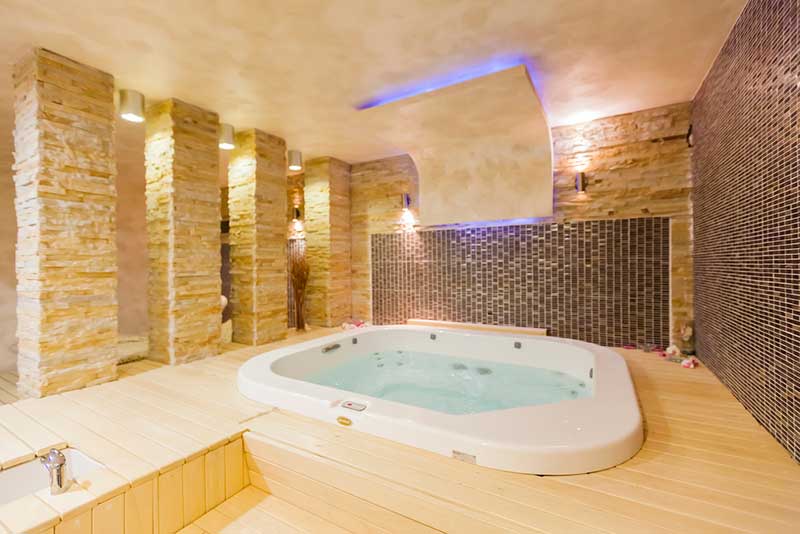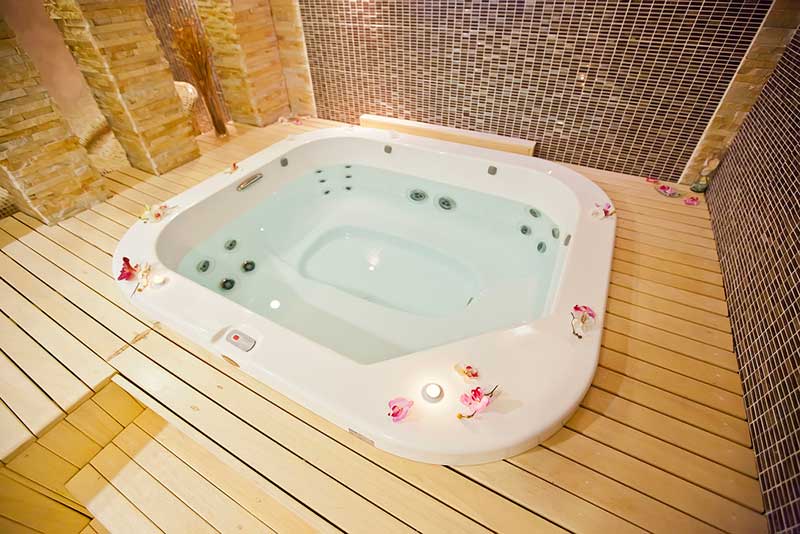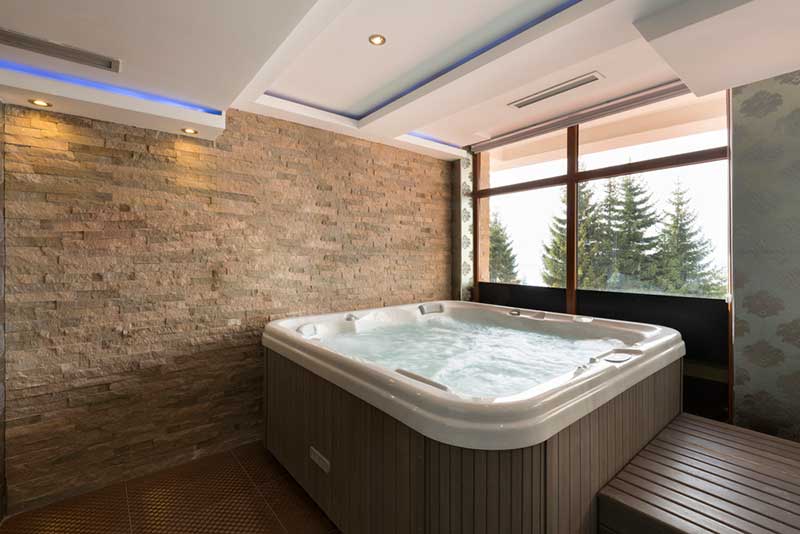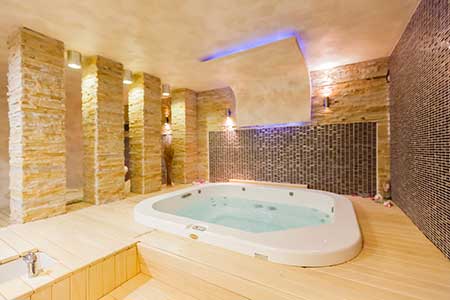
It’s generally the best idea to employ a professional electrician to do the electrical installation for your hot tub. However, it’s always good to know exactly what is going on and to make sure that the work has been done to the proper standard. One task that you might be asked about during installation is grounding your hot tub. Does a hot tub need to be grounded and if so how do you go about getting the work done?
I decided to do some research and this is what I found out:
So, Do Hot Tubs Need To Be Grounded? A hot tub should be grounded. In very simple terms, keeping a hot tub grounded ensures that it doesn’t cause any electrical surges that can be potentially fatal, especially if you are in the hot tub at the time.
If you own a hot tub and an electrician asks if you want the tub to be grounded, it is probably for the best that you just say yes and pay the small extra fee. The money is more than worth it to ensure that you don’t suffer from any potential electrical surges.
Why should a hot tub be grounded?
In very basic terms, grounding (in an electrical sense) is when an electrical cable or wire is fed into the ground, usually via an electrical panel. This allows the wire to safely distribute any excess electricity directly into the ground, which stops the current from travelling fairly effectively.
This excess of electrical energy could otherwise cause a power surge to occur. If this electrical surge comes into contact with a living thing then a powerful electrical charge could be sent through the body, which could be fatal.
In the case of a hot tub, if the electrical wires have not been grounded then this electrical surge could travel into the tub itself, potentially causing fatal health issues if anyone is using the tub at the time as water is an excellent conductor of electricity.
What Is Grounding And How Does It Work?
In the vast majority of modern homes, the entire network of electrical cables and wires usually has one primary central grounding point. This grounding point usually takes the form of a metal grounding rod that is pushed deep into the ground. This rod extends into the house and connects to an underground water deposit.
A metal conductor (usually made from copper) is then used to connect the rod to a series of electrical terminals that connect the wires on the ground to a central service panel. Wires that are coated in metal conductive material can act as a conductor between the service panel and the wall outlets. Plastic-coated wiring requires an additional cable to be connected to be used for grounding.

The science behind grounding is actually relatively simple to understand. Essentially, electricity is constantly trying to find the shortest path possible back to the ground. A grounding wire can help to guide this electrical charge directly into the ground.
This direct connection into the Earth ensures that the electrical charge does not need to find another way into the ground, a pathway which often results in a person becoming the conductor and thus causing potentially fatal health issues.
Why You Should Ground Your Hot Tub
While some electricians may not suggest that your hot tub needs grounding, it is very important that you push to get your hot tub grounded. The difference could genuinely be life or death. Grounding your hot tub protects the electrical system from overloading.
If your hot tub suddenly surges in power for some reason, then this can produce an extremely dangerous electrical outburst that will have an extremely high voltage. If this high voltage current hits you at any point, then it could cause fatal damage to your nervous system.
However, if your hot tub’s electrical system is effectively grounded then any excess electricity that occurs during a surge can be safely directed into the Earth, where the current will be stopped quickly.
Having your hot tub’s electrical system grounded will also mean that the entire electrical network in your house is kept running efficiently and safely as the power can be directed exactly where it needs to be in an effective and straightforward manner.
Similarly, the voltage levels of your electrical system can also be kept stable and perfectly maintained as due to the direct nature of the grounded cables, all of your power can be distributed effectively. This ensures that the circuits do not overload when you turn your hot tub on or off.

It cannot be overstated just how important it is to ground your hot tub’s electrical system in order to prevent any possible injuries from occurring. If your hot tub is not grounded, then that greatly increases the risk of the hot tub’s electrics becoming damaged beyond repair which can ultimately cause a power surge to occur.
In the absolute worst case scenario, a severe power surge can even cause a fire to break out which, in turn, could damage your hot tub significantly, your property and, more importantly, could greatly harm you and anyone else in the vicinity. It is much better to just pay the sum required to ground your hot tub to ensure that none of this ever happens.
What Does A Hot Tub Electrician Do?
When it comes to grounding your hot tub’s electrical system, you should absolutely leave the work to the professionals. Trying to ground your hot tub’s electrical systems by yourself could end in absolute disaster if you don’t know exactly what you are doing.
It is highly recommended that you seek out fully-qualified, experienced electricians that know how to efficiently ground a hot tub and hire them to do the work for you. You may be wondering just what the electrician will do to your hot tub, but you needn’t worry, no matter how strange some things may look they will all be worth it in the end to ensure that your hot tub runs safely.
The first thing a hot tub electrician will do is plan out exactly where the wiring will be going. The electrician will map out how the wiring should best run between your hot tub and the service panel on your house, ensuring that the wires are grounded in the process.
A trench will then be dug along this mapped out wiring line. The wiring will then be connected to the hot tub, firmly planted into the trench, and connected into the service panel on your house. The trench is then filled and made to look as though no work has been done at all. This whole wiring process shouldn’t take overly long and is worth every single penny to ensure that your hot tub is completely safe to use.
Related Questions
Does A Hot Tub Require A Ground Rod? Whilst a hot tub’s electrical system does need to be grounded, it does not necessarily require a separate ground rod to be installed. The vast majority of modern homes will already have a central ground rod that acts as the primary grounding device for all of your home’s electrical appliances.
This rod is what grounds all of your appliances, ensuring that any excess electricity runs into the ground as opposed to you. A hot tub does not need a separate ground rod all to itself as this could create a loop between your home’s ground rod and the hot tub’s, potentially causing overloading issues.
How Deep In The Ground Does A Hot Tub Need To Be? It is generally considered that a hot tub should be about four to six inches in the ground. Of course, this depends on your hot tub’s size and weight. The ground underneath the hot tub must be both smooth and completely level to ensure that the hot tub does not surge or become damaged over time.
How Do You Prepare The Ground For A Hot Tub? First, you need to choose a specific area where you wish your hot tub to be. You need to choose a piece of dry land that has sufficient drainage. A muddy area will not work. You need to choose an area that is both aesthetically pleasing and practical, meaning that it shouldn’t block any power lines and should be completely accessible.
Ensure that the hot tub will be within reach of a water source such as a hose. Make sure that the tub will be at least five feet away from your electrical service panel. Level the ground and smooth it out before the hot tub is placed.

